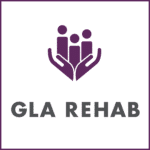As occupational therapists, one of our focuses of therapy is the client’s ability to participate effectively in their activities of daily living. This may comprise of their basic activities of daily living (ADLs), which include bathing, dressing, feeding, mobility, and grooming. It may also comprise of their instrumental activities of daily living (IADLs) which include caring for others, driving, financial management, home management/maintenance, meal preparation, and shopping.
IADLs are not necessary for vital functioning. However, they allow an individual to live independently in the community.
Following a traumatic brain injury, often individuals will notice difficulties in their ability to participate in their IADLs. This may be a result of executive dysfunction, including difficulties with planning, organization, time management and self-monitoring.
The Independent Living Scales (ILS) is a standardized assessment of competence in IADLs, requiring the individual to demonstrate problem-solving skills. It is composed of 5 subscales:
- Memory/ Orientation
- Managing Money
- Managing Home and Transportation
- Health and Safety
- Social Adjustment
The ILS evaluates the degree to which an individual is capable of caring for themselves, others and their property. It takes approximately 45 minutes to administer. The assessment incorporates functional activities such as searching a phone book, writing a cheque, paying a bill, counting money and making a telephone call into the assessment.
The final score from the ILS determines if the individual falls within the category of low, moderate or high functioning for each subsection.
The OTs can use the results of the assessment to determine if the individual is able to live independently or if they require assistance. If they require assistance, the OT can use the information from the ILS to determine their areas of need.
The advantages of the ILS include performance based testing which improves the ecological validity of the test and that it appears to reflect cognitive aspects of performance.
A disadvantage of the ILS includes that it might not be sensitive enough to identify individuals with mild cognitive impairments.
To learn more about the ILS or other assessments used at GLA, please contact us. We would be happy to provide you with more information.


